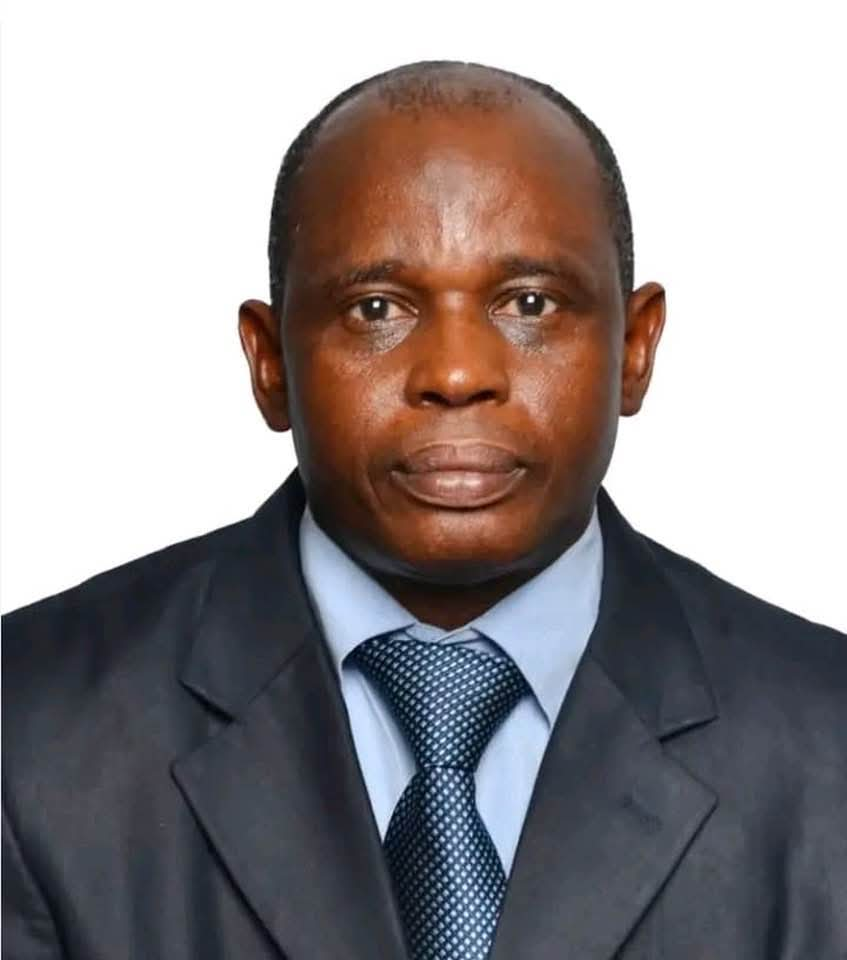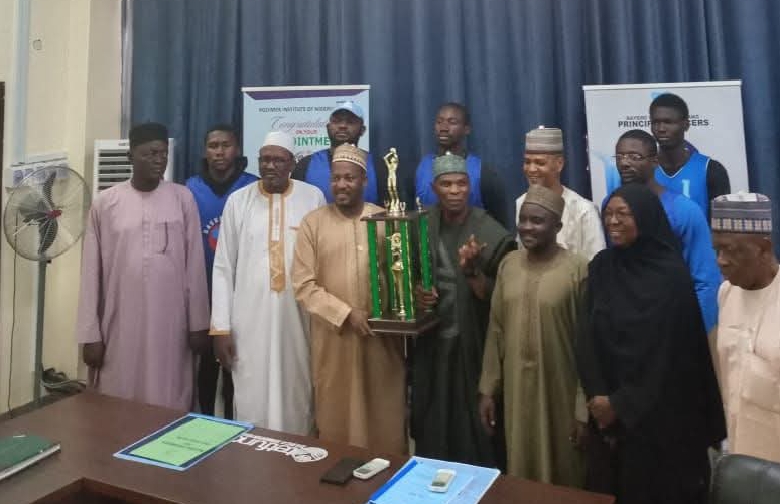Headlines
Pathfinder trains KanSLAM members on communication strategy

Nasiru Yusuf Ibrahim
Pathfinder International has supported the Kano State-Led Accountability Mechanism (KanSLAM), in collaboration in developing a communications strategy for the SLAM.
KANO FOCUS reports that the communication strategy was developed during a five-day intensive training which resulted in developing a robust communications strategy for the SLAM.
The training, held from July 29th to August 2nd, 2024, in Kaduna, also focused on enhancing the organization’s capacity to effectively advocate for improvements in the health and education sectors in Kano State.

A communications strategy is crucial for an organization as it provides a structured approach to effectively convey its messages, goals, and values to target audiences. It helps align all communication efforts with the organization’s objectives, ensuring consistency and clarity in messaging across various platforms.
Pharm. Maimuna Yakubu, the Co-chair of KanSLAM, expressed her enthusiasm for the new communications strategy, emphasizing its potential to significantly impact the SLAM’s efforts in health and education advocacy.
“This strategy will enhance the work and outcomes of KanSLAM, particularly in our key focus areas of health and education. To ensure that our advocacy efforts in these sectors are successful, we need compelling and dynamic ways to share our evidence and push policymakers to act on them. This training has equipped us to achieve that,” Pharm Yakubu stated.
She further urged KanSLAM members to actively apply their newly acquired communication skills to improve the SLAM’s overall communication efforts.
Dr. Sakina Bello, Senior Technical Adviser at Pathfinder International, highlighted the importance of effective communication for KanSLAM, a coalition focused on accountability and advocacy.
“We identified some communication gaps within KanSLAM, and this training was designed to bridge those gaps. During the course of the training, the SLAM has been able to identify some of its communication challenges and opportunities for progress,” Dr. Sakina noted.
She hopes that KanSLAM would not only internalize the new communications strategy but also incorporate it into their daily activities beyond the health and education sectors. “I am happy that they will now use the communication strategy to directly advocate in areas where they desire change, and I hope that change will be seen,” she added.
Bayo Ewuola, Senior Media and Communications Officer for Pathfinder International, elaborated on the significance of the training for KanSLAM.
“Communication, evidence generation, and documentation are crucial for KanSLAM. As a CSO-led organization, there should be systems and structures in place to guide their communication operations. This training seeks to build their capacity so they can increase their visibility as a SLAM,” Ewuola explained.
He emphasized the importance of KanSLAM’s media representatives in packaging their advocacy efforts effectively to ensure they are compelling when presented for action.
“We have developed a robust communication strategy for the SLAM, along with a content calendar, content strategy, and advocacy checklist. All of this will enhance KanSLAM’s visibility in the near future,” he concluded.
Mukhtar Suleiman, a communications expert who facilitated the training, praised KanSLAM’s progress in developing a functional communications strategy.
“The SLAM now has a functional communications strategy that all members of the team collectively pitched and adopted, which is a significant win for the SLAM,” Suleiman said.
He encouraged consistency in working with the strategy for effectiveness and urged the SLAM to continue finding new ways to improve on the outcomes generated during the training.
“I am pleased that some of the challenges identified during the SWOT analysis have already been addressed, and I am happy with the SLAM for doing that. This training will benefit KanSLAM in reporting on findings in health and education, and I believe they will achieve better outcomes in documenting their successes and communicating effectively,” Suleiman added.
The Chairperson of the Knowledge Management Committee (KMC) in KanSLAM Nafisa Murtala, expressed her satisfaction with the training and appealed to committee members to apply the newly developed communications strategy in discharging their duties.
“This training has been invaluable, and I am confident that KanSLAM’s visibility will improve in the coming weeks,” Murtala stated, reflecting the optimism shared by all participants regarding the future of KanSLAM’s advocacy efforts.

Headlines
Gov. Yusuf mourns former Kano finance commissioner, Prof. Dandago

Nasiru Yusuf Ibrahim
Governor Abba Kabir Yusuf has expressed deep sorrow over the death of former Kano State Commissioner of Finance and renowned academic, Professor Kabiru Isa Dandago.

KANO FOCUS reports that the governor’s reaction was contained in a statement issued on Wednesday by his spokesperson, Sunusi Bature Dawakin Tofa, Director General, Media and Publicity, Government House, Kano.
Governor Yusuf described the late Prof. Dandago as a dedicated public servant and accomplished scholar whose contributions to education and governance left lasting footprints in Kano State.
He noted that the former finance commissioner served the state with integrity and commitment and was widely respected for his professionalism, humility and passion for knowledge.
According to the governor, Kano State has lost a valuable son whose experience and wisdom greatly enriched both public service and the academic community.
Governor Yusuf extended his heartfelt condolences to the family of the deceased, the academic community and the people of Kano State over what he described as an irreparable loss.
He prayed that Almighty Allah forgives the shortcomings of the late Prof. Dandago, grants him Aljannatul Firdaus and gives his family and loved ones the fortitude to bear the loss.

Headlines
GATCOSA President, Prof. Kabiru Isa Dandago is dead

Nasiru Yusuf Ibrahim
The National President of the Government Arabic Teachers College Gwale Old Students Association (GATCOSA), Professor Kabiru Isa Dandago, is dead.
KANO FOCUS reports that Prof. Dandago, a renowned Professor of Accountancy at Bayero University Kano, died on Wednesday evening. His passing has thrown the academic community and associates into mourning.
In a message shared on GATCOSA’s WhatsApp platform, a Director at the Kano State Ministry of Higher Education, Alhaji Nura Dandago, announced that the funeral prayer for the late professor would be held on Thursday at 9:00 a.m. at his residence in Rijiyar Zaki Quarters, Kano.

Until his death, Prof. Dandago served as the National President of GATCOSA and was widely respected for his contributions to education and public service. He previously served as Commissioner for Finance in Kano State during the administration of former Governor Abdullahi Umar Ganduje.
Just last Saturday, the late academic presented a paper on economic challenges in Northern Nigeria at a Ramadan Lecture organised by the Islamic Forum of Nigeria, where he spoke passionately about strategies for economic reform and regional development.
Colleagues and admirers described Prof. Dandago as a dedicated scholar and public servant who was deeply committed to building a prosperous and self-reliant nation. His death marks the end of a distinguished career in academia and public service.

Headlines
BUK clinches Northwest 3×3 basketball title at ABU Zaria

Nasiru Yusuf Ibrahim
The basketball team of Bayero University Kano (BUK) has emerged champions of the Northwest 3×3 Basketball Championship hosted by Ahmadu Bello University (ABU), Zaria.

KANO FOCUS reports that the victorious team presented the championship trophy to the Vice-Chancellor, Prof. Haruna Musa, following their impressive performance at the tournament, which featured six universities from across Northern Nigeria.
BUK went unbeaten throughout the competition, winning all six matches and sealing the title with a thrilling 20–18 victory over the host institution, ABU Zaria, in the final.
In the group stage, BUK recorded a 10–0 win against Northwest University, Kano, and defeated the Air Force Institute of Technology 33–20. The team also edged the Federal University of Education, Kano, 11–9, before securing another dominant 10–0 victory over the Federal University of Transportation, Daura. They capped their remarkable run with the narrow 20–18 triumph in the final.
The victory marks BUK’s second championship title in the history of the competition, reinforcing the university’s growing reputation in collegiate sports.
Receiving the team, the Vice-Chancellor congratulated the athletes for bringing pride to the institution and urged them to sustain and surpass their current achievements. He reaffirmed the management’s commitment to strengthening sports development in the university and pledged continued institutional and individual support for the players’ sporting careers.
The presentation ceremony concluded with the formal handover of the trophy and cash rewards to the athletes in recognition of their discipline, teamwork and excellence.











